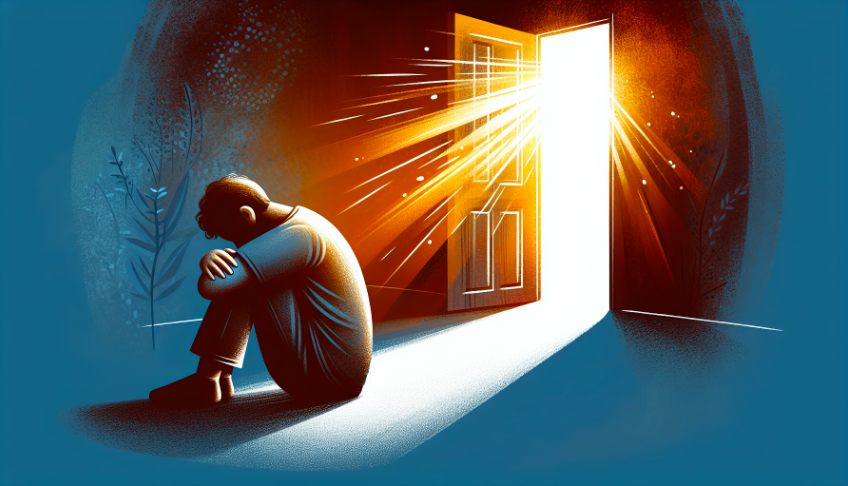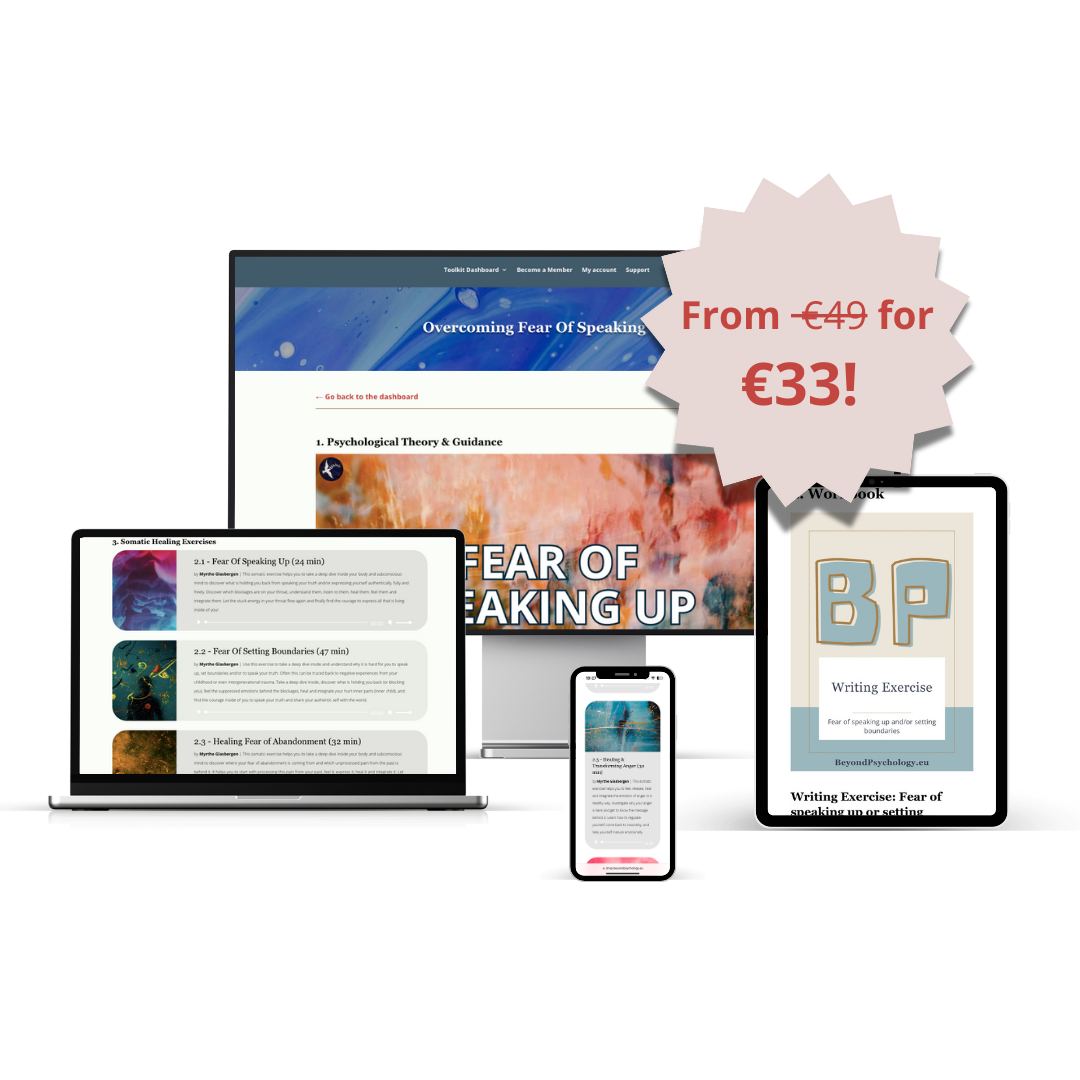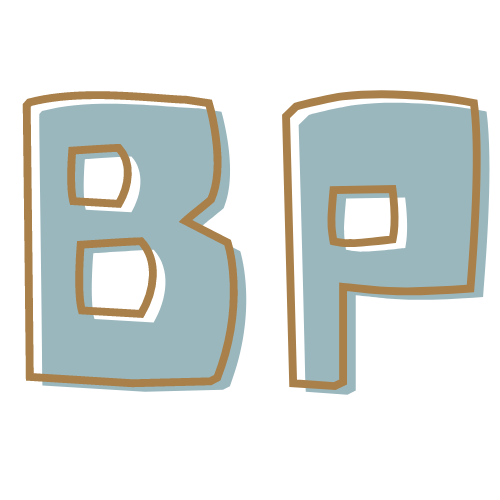In this blog, we’re diving into the father wound—a deep, often overlooked issue that can shape your life in significant ways. We’ll explore what the father wound is, how it comes about, and the signs that might indicate you’ve experienced it.
You’ll also learn about the consequences of this wound on both your childhood and adult life, along with the coping mechanisms you may have developed to protect yourself. Most importantly, we’ll discuss the steps you can take to heal and move beyond this wound.
Below you can watch our video about this topic. Prefer to read on? Just scroll below the video.
What is the father wound?
So, what exactly is a father wound? Simply put, it occurs when a father is physically, emotionally, or mentally absent during a child’s upbringing. This absence can manifest in various ways. It might be literal, like in cases where the father is not present due to passing away, divorce, or choosing to avoid his responsibilities. Alternatively, the father might be present physically but absent emotionally or mentally. This could be due to behaviors such as being overly controlling, emotionally shut off, or abusive. He might struggle with addiction, exhibit emotionally explosive behavior, or even be overprotective to a damaging extent.
When a father displays such behaviors, he becomes emotionally neglectful. He’s not providing the emotional maturity, presence, and support that a child needs. The father fails to be that guiding adult who protects, advises, and accepts you as you are. This absence of support can leave a significant void, impacting your ability to grow into a resourceful and resilient person.
This wound is reinforced when your father is controlling, belittling, or emotionally abusive. You might find yourself being shamed, ridiculed, or given the silent treatment. In such an environment, you could start to feel that you’re never good enough to earn his love, attention, or validation. You might internalize this behavior, leading to feelings of inadequacy and a belief that you will never be able to please him. This can create a deep sense of shame around who you truly are, causing you to suppress parts of your authentic self in an effort to stay safe and maintain a connection with him.
The father wound can also cause you to feel an overwhelming sense of guilt about your true self. You may start to believe that you’re too much for others or that no one really cares about you. This wound runs deep, affecting your self-esteem and the way you view your own worth.
As we continue, we’ll delve into the impact this wound has on your life and discuss ways you can begin to heal and reclaim your sense of self.
The consequences of the father wound
In your relationship with your father, a father wound can have some significant and challenging consequences. It often messes with your self-esteem, your sense of self, and your self-worth. This wound can lead to an internalized sense of shame, anger, rage, and grief—all of which you might end up suppressing and stuffing away because they feel too intense and overwhelming to process, especially as a child. You might not have known how to deal with these emotions, so you dissociated from them, hoping they would disappear.
Unfortunately, these feelings don’t just go away. You might find yourself developing mental health struggles or experiencing emotional outbursts. There’s often a struggle with not becoming like your father, or you may notice that some of your behaviors are similar to his. This wound can make it difficult to form healthy relationships, leading you to chase the wrong partners or find yourself repeatedly in abusive dynamics.
Low self-worth can manifest in various ways, sometimes leading you to mask it with anger and aggression. You might become very defensive, seeing the world and others as threats. Authority issues and difficulty setting boundaries can arise, pushing you towards people-pleasing or completely enmeshing yourself in relationships. On the other hand, you might become rigid and controlling in relationships, seeing this as the only way to stay safe.
There’s also the potential for extreme jealousy and controlling behavior, stemming from deep-seated anxiety and fear of rejection. The root of this can often be traced back to the rejection or abandonment experienced with your father.
Download Our Free Starter Pack
& Start Your Journey of Self-discovery, Healing, Transformation & Empowerment!
The creation of coping mechanisms
As a child, to survive this dynamic, you had to develop coping mechanisms to stay connected to him. This craving for his approval and emotional attunement, something he couldn’t provide, stays with you into adulthood.
These coping mechanisms—also called survival mechanisms or relationship mechanisms—were necessary and functional in your childhood. They kept you safe and connected to your primary attachment figures. But as you grew up, these mechanisms didn’t emotionally mature alongside you. They remain with you, continuing to influence how you interact with others and how you see yourself.
This can result in struggles in adult life, especially in relationships and areas like performance, entrepreneurship, and expressing your creativity. The dysfunctional coping mechanisms you developed as a child, such as perfectionism, people-pleasing, aggression, control, or rigid boundaries, now contribute to the challenges you face.
It’s important to recognize that these behaviors were once functional and served a purpose. However, they haven’t evolved to meet the needs of your adult self. They continue to protect you from the buried pain and emotions from your past. You might notice tendencies like perfectionism, anger, control, submission, or speaking your truth too forcefully or not at all. These patterns can mirror the behaviors of your father or develop as reactions against them.
The creation of unhealthy attachment styles
In addition to coping mechanisms, you also developed an attachment style—the way you relate to others and yourself. If you grew up in a happy, healthy dynamic, you might have a secure attachment style, with a strong sense of self-worth and the ability to set boundaries and express needs. However, if your relationship with your father was marked by a wound, you may have developed an attachment style that doesn’t serve you well in relationships.
This can manifest as an avoidant strategy, where you avoid intimacy, vulnerability, and apologizing. You might steer clear of your vulnerable emotions due to the buried shame and grief. Avoiding intimacy feels safer than allowing yourself to be vulnerable.
Alternatively, you could have an anxious attachment style, where you constantly seek reassurance and validation from others. This external validation is something you needed from your father but never received, leading you to anxiously search for it in the outside world. You might become enmeshed in relationships, people-pleasing, and adapting to others while neglecting your own boundaries and needs.
It’s not always black and white, and these attachment styles can vary across different relationships. But with some understanding of your past, you can start to recognize the impact of your father wound in your daily life and relationships. This awareness is the first step towards healing and transforming your sense of self, self-worth, and overall wellbeing.
OVERCOMING FEAR OF SPEAKING UP TOOLKIT
This toolkit is designed for the empaths, people pleasers, over-givers, sensitive souls and seekers who all wish to overcome their fear of speaking up, let their voice be heard, and free their authentic selves. Learn why it is so hard for you to speak up, set a boundary or share your truth. Discover to which unprocessed events from your past your fear of speaking up is connected to, and feel the suppressed emotions that are behind it.
Shop now for only €33 instead of €49!
6 steps to heal the father wound
So now, the most crucial question is, how do you heal and overcome a father wound? Healing starts with the first step—becoming aware of the father wound inside of you. Recognize the impact that your father’s behavior had on you as a child. This process is about acknowledging this wound and the pain it carries within you.
It’s important to disconnect this recognition from blame. This isn’t about seeing your father as a bad person but rather understanding how societal, cultural, and patriarchal conditioning have shaped our experiences. This wound is a collective issue, influenced by factors like toxic masculinity and societal norms. For now, in your individual healing journey, start by accepting and acknowledging the wound within you.
The next step is learning to love yourself completely. If that feels too difficult right now, start with radical self-acceptance. Accept yourself as you are in this moment, without judgment. From there, work on building compassion for yourself. Visualize the hurt child from your past and give it the reassurance, validation, and acceptance it needs. Shift your focus from seeking love and validation outside of yourself to giving it to yourself.
A practical exercise is to ask yourself: What does it look like when I give the love I desperately seek from others to myself?
Another vital step is recognizing the coping mechanisms you’ve created to protect yourself in the past and how they are still affecting you today. These mechanisms, though once functional, may now be holding you back. Identify these patterns and understand how they might be sabotaging your current relationships and personal growth. Reflect on the underlying beliefs driving these behaviors. For instance, if you’ve developed people-pleasing or perfectionism, it might stem from a core belief that you are not good enough. Challenge these beliefs and rewrite them in a way that serves your present self.
Consider how a healthy coping mechanism might look and how you can start adopting those. How would a nurturing, supportive father guide you in overcoming old, unhealthy coping patterns?
Next, engage in shadow work to uncover where you might still be subconsciously seeking to get your unmet needs fulfilled. Where are you showing manipulative behavior to get what you want, whether through domination or people-pleasing? This step involves being brutally honest with yourself and changing those behaviors.
Develop emotional tolerance around the triggers from your past. Recognize what situations or people activate these old wounds and allow yourself to feel the associated emotions fully. Whether it’s through somatic exercises, journaling, or working with a therapist, processing these emotions will help you create a pause between stimulus and response. This pause is where real change happens.
Finally, rebuild trust and a sense of safety within yourself. As you become more aware of your triggers and learn to pause before reacting, you can create new and healthier responses. This shift in behavior leads to different outcomes in your life and is the key to overcoming the father wound.
Healing is about experiencing the opposite of what caused the pain in the first place. By creating new experiences and reactions, you break free from old, dysfunctional cycles and step into a new reality.
If you have any questions about the father wound, how it’s created, how to recognize it, or how to heal it, feel free to ask. Share your experiences or thoughts below. We can all learn from one another.
BP’S MEMBERSHIP
Heal from your past, Free your Authentic Self & Transform yourself and your life!
Become a member and gain access to all our exclusive healing tools for €99 per year only!
This Is How We Can Help You
If you resonated with the insights shared in this blog post and are seeking guidance on your healing journey, below are 3 ways we can help you.
Away from traditional (talk) therapy and coaching Beyond Psychology has created new tools for self-discovery, healing, transformation and growth. Our tools follow a holistic approach and combine somatic and emotional healing practices with psychological theory & guidance.
1. Shop in our webshop
In our webshop you can find all our tools sorted by theme, visit our shop here.
2. Become A Member
Become a member of our online platform & community for Self-discovery, Healing, Transformation & Empowerment: Heart Journey.
Gain gain instant access to all our Meditations, Somatic Exercises, Parts Work Exercises, Videos, Visualizations and much more for just €11,99 per month or €99 per year!
Become a member here.
3. 1-on-1 Guidance
Feel in need of personal guidance? We offer 1-on-1 guidance that transcends classic talk therapy & coaching, speaks directly to the emotions and trauma stored and suppressed in the body, and gets to the root of mental, emotional & physical suffering. Just click here to book a free intake.
Related Blogs

Enmeshment: A Co-dependent Relationship Style
Understanding Enmeshment Enmeshment is a relationship style in which an individual becomes completely intertwined with another person, typically a parent or a partner, to the point of losing their own identity. It is a covert style that involves copying the...

Procrastination: Why you do it & How to overcome it
Procrastination is a fascinating phenomenon. We often have dreams and desires, but when it is time to take action, we find ourselves getting distracted, or feeling resistance in the form of experiencing negative emotions such as anger, sadness, and anxiety. We become...

Fear Of Failure: Overcoming Your Biggest Obstacle
Fear of failure is a common fear that many people struggle with. It can hold us back from pursuing our dreams, creating the life we desire, and even transforming ourselves. In this blog, we will explore what fear of failure is, why we are afraid to fail, and how to...

Fear of Abandonment
Have you ever felt the fear of abandonment or rejection? This fear is incredibly powerful and can have a significant impact on our relationships and personal growth. It holds us back from expressing ourselves authentically and achieving our dreams. In this blog, we...

Women Empowerment & The Male Gaze
As women, we are conditioned from a very young age to seek male approval, to cater to the male gaze, and to ensure that we are liked, loved, and considered attractive by as many men as possible. This societal conditioning places an immense pressure on us to conform to...



